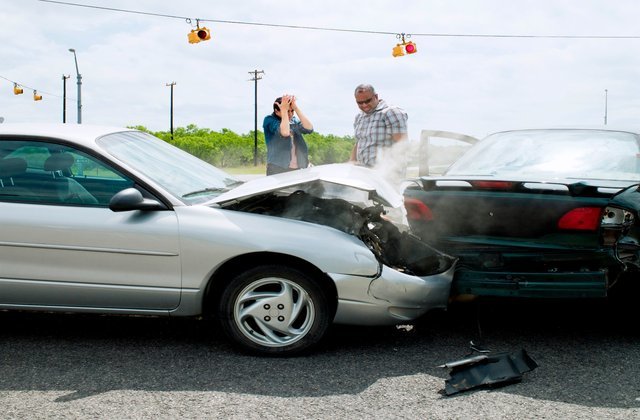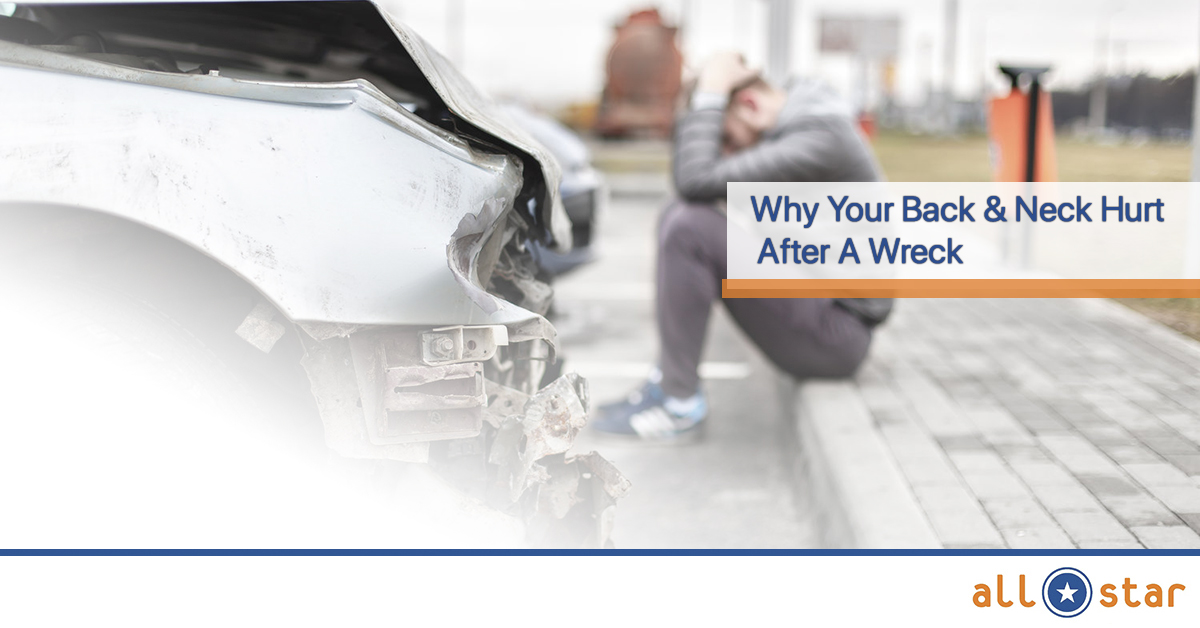Why Your Back & Neck Hurt After A Wreck
A vehicular accident may very well be the most traumatic experience many people will ever face. While automobile manufacturers are always trying to innovate ways to protect motorists, the fact remains that the forces at work during a car accident will have a high probability of adversely affecting your body in hugely significant ways. Of particular concern are injuries sustained by your back and neck.

The first thing to acknowledge in a car wreck is that vehicles are extremely heavy and designed to move very fast. This might sound a bit obvious, but it helps to frame the most significant underlying factor as to why we sustain injury in a car crash: a ton of pressure is exerted on your body in an instant. Not just that, but this pressure is applied to your body in unnatural and painful ways.

The reason why your back and neck are at particular risk in a car accident is due to the sudden jerking motion your entire body undergoes during impact. You may have heard this phenomenon referred to as whiplash. Your body suddenly stops at the crash, but your head is flung in the direction you were driving. Your head will naturally go only as far as your neck will allow, then assuming you were wearing your seatbelt will be yanked back in the opposing direction. Your spine has a natural capacity to absorb shock that you encounter in your everyday life, and your body will naturally try to counteract the strain being placed on it. However, the tons of force produced by a vehicular collision is simply unnatural for a typical human to endure. Even the lightest of fender benders may produce whiplash that you are just not meant to sustain.

Your spine and neck are complex networks of nerves, muscle, and bone. The vertebrae in your back are aligned in a particular way, and in between each vertebra is a jelly-like disc that is meant to keep the bones from rubbing and chafing against each other, as well as absorb a moderate amount of shock during times of trauma. When you sustain whiplash, your neck and spine are unnaturally stretched, which can cause sprains due to the excessive force being placed on them. The surrounding muscles and ligaments are similarly stretched and may sprain or tear. If the discs in your spine sustain too much impact, they may herniate and slip out of place. In extreme circumstances, the discs can completely rupture.

In severe car wrecks, injuries will be highly evident and in need of immediate care. However, sometimes car accidents can be slight enough to leave participants shaken, but not in apparent pain. Unfortunately, these types of back injuries can have deep-seated effects that can last for weeks, months, or even years. Even if there is no evident muscle or joint pain, side effects may include migraines, numbness, and restricted movement.
The health of your back and neck are of paramount importance in your life. If you are involved in a car wreck, it behooves you to consult a doctor or chiropractor as soon as possible to determine the extent of the injuries, if any. These are problems that can be addressed and corrected but demand immediate attention and consideration. The slightest bit of precaution can spare you a literal lifetime of hurt down the road.


